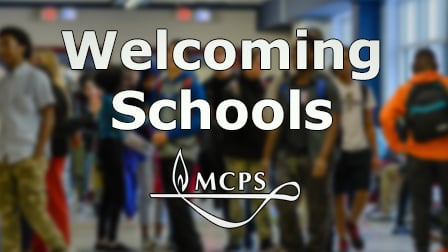Faith Community Partnership Resources
Building a strong relationship with the community is critical to the success of Montgomery County Public Schools (MCPS) and our students. A key partner in our efforts to support students and families is the faith-based community. The first step toward strengthening this partnership is greater communication on issues important to us all. That is why MCPS, in partnership with the Montgomery County Executive's Faith Community Working Group, has developed resources that can be used by faith-based community leaders to help raise awareness about the district’s efforts to ensure all students succeed.
These resources include flyers, inserts and messages that can be used in newsletters, bulletins and on websites. Topics in these resources will range from equity to respecting religious diversity to school budgeting.
Check back regularly for new materials about our school system.
Deputy Superintendent Dr. Monifa B. McKnight Introduces the Faith Based Community Initiative
March 20: United We Learn | Combating Hate Through the Arts
Combating the elevated levels of divisiveness, prejudice, bias and hate that have emerged in our county and country is the responsibility of every community member, including students. To help our county combat hate, Montgomery County Public Schools, in partnership with the Montgomery County Faith Community Advisory Council, Montgomery County Office of Human Rights, Montgomery County Human Rights Commission and the Committee on Hate Violence, is launching United We Learn: Combating Hate through the Arts. This contest asks students to use art to explore issues of diversity, bias and prejudice to empower the community to combat hate. This contest is directly aligned with our core values of Learning, Respect, Relationships, Equity and Excellence.
March 2: Welcoming Schools, Regardless of Immigration Status

Montgomery County Public Schools (MCPS) is committed to ensuring that all students feel safe and welcome in our schools, regardless of immigration status.
In recent weeks, parents and students have asked what steps MCPS is taking to ensure a welcoming learning environment, particularly in light of national conversations on immigration, as well as reports of increased deportation efforts by Immigration and Customs Enforcement (ICE).
We do not intend to cause unnecessary alarm in our school communities, but we want our families and students to know that we are working with other Montgomery County agencies and community organizations to prepare for any scenario.
Other languages: español / 中文 / français / tiếng Việt / 한국어 / Amharic